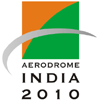Advanced Therapy Medicinal Products – Dynamic Pharmaceutical Product Research and Development Insights
The PDA Europe Workshop on ATMPs 2011 was held in collaboration with Finnish Medicines Agency (Fimea) in Helsinki, Finland, on 7-8 June 2011. The conference was opened by the director general of Fimea, Dr Sinikka Rajaniemi.
In her introductory talk, Dr Rajaniemi highlighted the advances in molecular and cell biology and biomaterial technology that have created the foundation for a new era in medicine – the correction, replacement or even the rebuilding of tissues and organs responsible for essential functions using advanced therapy medicinal products (ATMPs, gene / cell therapy, tissue engineering).
She further reminded that ATMPs also carry risks, such as immunotoxicity, cell transformation and transmission of infections, which indeed was the reason for creating a regulatory pathway that ensured adequate quality and a positive benefit/risk ratio for products entering the market.
According to Dr Rajaniemi, the regulators equally realise that it is difficult to apply standard regulatory requirements to the development and assessment of ATMPs. “The regulatory requirements have to be tailored for ATMPs in the same manner as they were previously tailored for blood products and vaccines and subsequently for biotechnology-derived therapeutic proteins,” she said.
Dr Rajaniemi also mentioned that while expectations have been high, the development of ATMPs has proceeded painfully slowly. Despite hundreds of clinical trials, only one product had obtained marketing authorisation in the European Union as of June 2011. The very modest progress in product development is partly due to outstanding scientific problems and partly to difficulties in complying with regulatory requirements.
Furthermore, decisions on a national level concerning the reimbursement of innovative products and the implementation of hospital exemption may impact future commercialisation of ATMPs. Therefore, regulatory authorities need to balance their requirements between safe and efficacious products and patients access to ATMPs. “We must realise that successful development will require that the key parties, academia, industry and regulatory authorities engage in ongoing dialogue in order to solve the outstanding problems,” she concluded.
The conference brought together 148 ATMP experts from academia, industry and regulatory bodies from 20 countries around the world. All aspects of ATMP development were discussed, including CMC issues, non-clinical and clinical development, as well as the recent scientific results, novel technologies and regulatory advances concerning ATMPs. The high-quality agenda was appreciated by the participants and the workshop met all the expectations of both the organisers and the attendees.
The host venue, the Hilton Hotel Kalastajatorppa, provided an outstanding environment and atmosphere for the participants. The conference attendees also enjoyed some unusual sunny and warm weather and the very light summer nights of Finland during their stay in Helsinki.
The next PDA Europe Workshop on ATMPs will be built on the successful experience of the Helsinki meeting and will be held in Lisbon, Portugal, on 5-6 June 2012.
Audio recordings available for purchase
Subsequent to this year’s conference, we are now offering presentations with voice-over commentary. Session recordings will provide those who could not personally attend the conference a chance to take part in the lectures and allows the people who did come the chance to hear sessions that they missed.
If you are interested or would like more information, please contact PDA.

